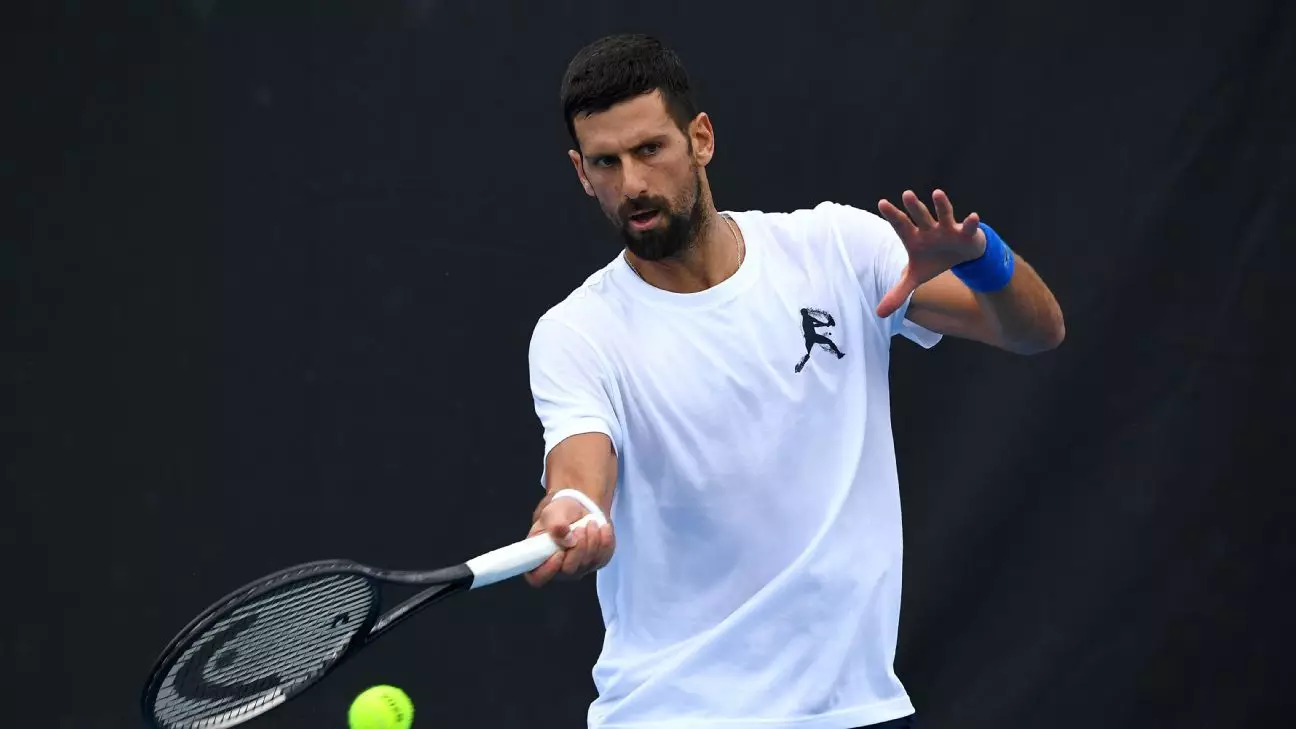As Novak Djokovic prepares to make his long-awaited return to the tennis court, he has not shied away from addressing pressing issues within the sport, particularly concerning its doping policies. With a remarkable career nearly defined by his resilience and a fervent desire to break records—most notably the pursuit of a record 25th Grand Slam title at the upcoming Australian Open—Djokovic’s comments reflect a deeper frustration that resonates with many in the tennis community. The Serbian star’s vocal approach to controversies surrounding doping reveals a significant oversight within tennis that calls for rectification.
Djokovic’s critique centers on perceived inconsistencies in handling doping cases involving high-profile players. With the case of Jannik Sinner, who was charged with doping violations but avoided a suspension due to the ruling that he was not at fault, Djokovic feels justifiably aggrieved. In his press statements in Brisbane, he articulated a profound sense of agitation, noting a lack of communication regarding the case, which has left players and fans “kept in the dark.” He highlighted the contrasting treatment of lesser-known athletes who have faced prolonged suspensions without even testing positive for banned substances. This discrepancy points to a systemic issue in the governance of tennis where transparency is sorely lacking, raising questions about fairness and equality in how regulations are enforced.
Djokovic’s discourse emphasizes a pressing need for transparency within tennis’s governing bodies. By contrasting the high-profile cases of players like Sinner and former women’s world No. 1 Iga Swiatek with the anonymity often faced by lower-ranked players under investigation, Djokovic illustrates a troubling double standard that not only undermines the integrity of the sport but also erodes trust among athletes. He poses critical questions regarding the ATP’s silence on these sensitive matters, implying that the governing body should offer clearer insight into its processes. Such discussions should not be relegated to the shadows; rather, they require open dialogue so that all players can understand the implications and standards of anti-doping regulations.
Adding a layer of complexity to these issues is Djokovic’s recent collaboration with former rival Andy Murray. Their partnership, which sees Murray taking on a coaching role for Djokovic during the Australian Open, symbolizes a shift in dynamics in tennis where mutual respect trumps prior rivalries. Djokovic’s acknowledgment of this relationship underscores the evolving nature of competition in professional sports, reflecting a willingness to learn from others, irrespective of past conflicts. This collaboration may serve as a metaphor for the broader sports community’s need to unite in the face of challenges, including doping, to preserve the sanctity of athletic competition.
Despite the tumultuous discussions surrounding doping and its consequences, Djokovic remains resolute in his ambitions for the 2024 season. Following a knee surgery that temporarily sidelined him, he returned to the court with renewed vigor, reaching the Wimbledon final and contemplating his legacy at the Australian Open—an event where he has historically excelled. As he gears up for this major tournament, it is evident that Djokovic’s concerns extend beyond personal accolades; he is advocating for change that could benefit not only himself but all athletes. His commitment to not only perform but also to challenge the status quo sets a significant precedent for future discussions on fair play within sports.
Novak Djokovic’s outspoken criticism of the current handling of doping cases in tennis reflects a broader concern that transcends the individual athlete. By advocating for clear policies, equitable treatment of players, and greater accountability from governing bodies, he champions a vision for tennis that promotes ethical standards and fairness. As he steps onto the court at the Brisbane International, Djokovic embodies not only the drive for personal greatness but also a desire for reform within the sport that could ultimately lead to a more transparent and just environment for all competitors. The forthcoming season might just be a turning point, not only for Djokovic but for the sport of tennis at large.


Leave a Reply